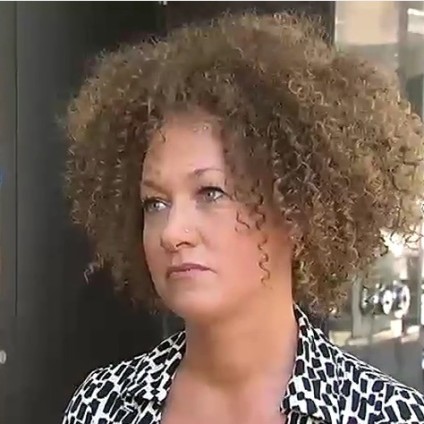A Brief Comment on Rachel Dolezal’s Story

Note: I realize this a controversial topic, and I want you to read the entire article before jumping to conclusions. I haven’t formed much of an opinion about this. Mostly, I just find the broader topic of “labels” interesting, and that’s what I want the discussion to be around. I’ve tried to frame it in the best way I can.
Talk about one’s 15 minutes of fame. This Rachel Dolezal has created quite the discussion, and perhaps it is a worthwhile discussion. Dolezal has taken on cosmetic changes to aid her in passing as a “black,” (which is the term I think she stated she prefers), and has chosen that label for herself. Shouldn’t I be OK with that?
I can’t know her lived experience, as it’s not mine. I’ve never felt a need to be a race different from the one I understand myself to be, but what is that really. Are these labels that should carry this much weight? In a perfect world they shouldn’t make a difference, but perhaps they do represent a heritage, a community, and a lived experience. My experiences as a gay person comes to mind. It will be great when, someday, the label makes no difference in how others perceive or judge me. At the same time, as we’ve grown more accepted, I notice the diminishing of that community, and I miss it. (Maybe there’s just a bit of subversive in me.)
What does that observation mean about Rachel’s story. I’m not sure, but perhaps she was looking for a community that offered a new experience. It came to light yesterday that she had sued Howard University (a traditionally Black university) for discriminating against her as a white woman. The case was dismissed. Maybe Dolezal liked the community she found at Howard and within the African-American community, but wasn’t allowed in because of her race. So she adopted a new race. Again, I don’t know, but it seems plausible.
Also, I heard one African-American woman say that Dolezal wasn’t qualified to be a leader in the black community, because she hasn’t “lived the life.” Well, most certainly she didn’t live the life of an African-American in her early years, but it seems she’s identified as African-American for some time, and did so well enough to fool pretty much everyone. So, perhaps she does have some experience in that life. But, in the end, do we get call ourselves whatever we feel like we are?
Are we entitled to change our race as it might be appropriate to us and our feelings and experience? I don’t have the answers to any of those questions. Just a lot of questions. However, as a gay man of a certain age, you learn that one is better able to live life and contribute if one is authentic. Perhaps being black does feel authentic for Rachel. The indications seem to be that she was doing a good job for the organization (I haven’t heard anything to indicate otherwise). Shouldn’t she be allowed to continue? Perhaps had she not lied on forms and paperwork, but if she hadn’t, would she have had the opportunities, and been as effective? I don’t know.
On an individual level, this story, while very interesting, is not that significant, but as part of larger narrative, perhaps this is a discussion worth having. I expect, however, because those labels we use still carry great weight, it will be a difficult discussion.
